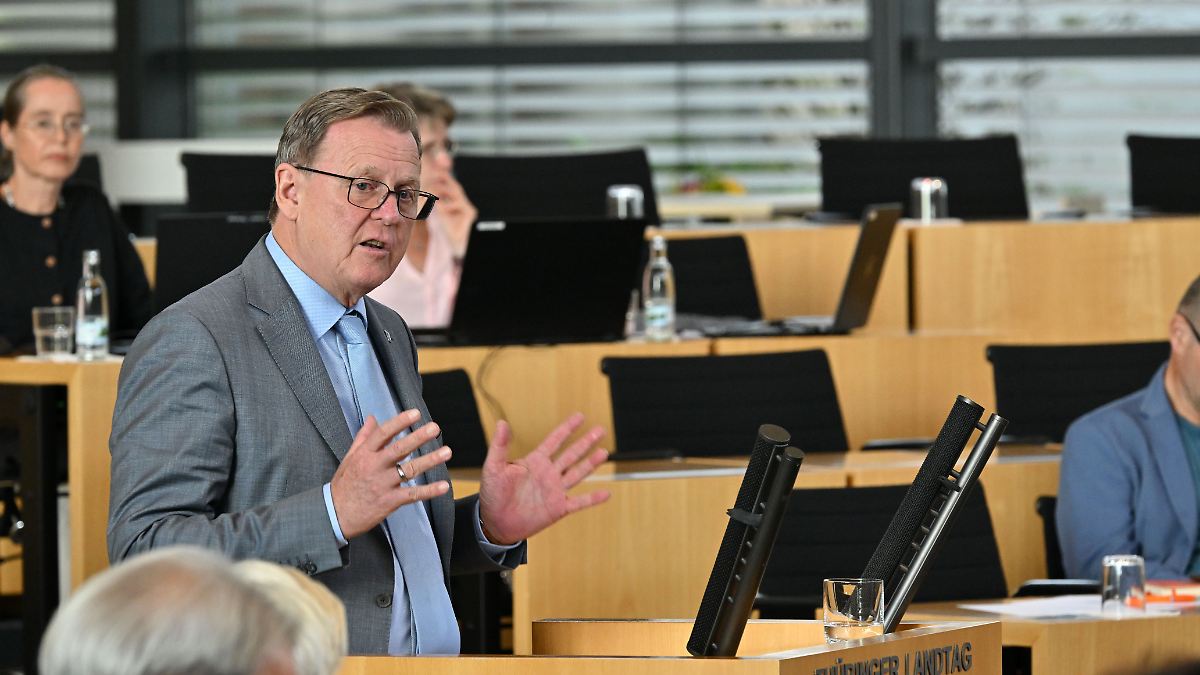Strong AfD in Thuringia
Ramelow: “Fascist positions are now normal”
This audio version was artificially generated. More info | Send feedback
In Nordhausen, Thuringia, the AfD missed out on its first mayoralty in Germany in a runoff election. For Prime Minister Ramelow, this serves as a model for dealing with the far-right party. But he is worried about nationwide developments.
Thuringia's Prime Minister Bodo Ramelow is observing a rise in fascist positions in Germany. “Not only right-wing populist, but also fascist positions have now become normal in Germany,” the left-wing politician told the “taz”.
The AfD is an openly fascist party in Thuringia and serves xenophobic sentiments. These also existed during the GDR era, but were never so widespread. “But that doesn't mean that we should give in to helplessness. We have to accept this challenge.”
In the mayoral election in Nordhausen, for example, it helped that local civil society mobilized a majority. “It doesn't help to give public advice from Erfurt or Berlin; it's often not perceived locally as advice, but rather as blows.”
In Nordhausen last weekend, the AfD had the chance to win its first mayoralty in Germany in a runoff election. However, the AfD candidate Jörg Prophet surprisingly lost in the runoff election against the incumbent Kai Buchmann (independent).
“We have to take the feeling of being left behind more seriously”
On the occasion of German Unity Day, Ramelow previously commented on the emotional state of the people in eastern Germany. These need to be given greater attention. “We must take the longing for recognition and equality, but also the disappointment and the feeling of being left behind, more seriously than ever,” he said.
“We don't want to leave these people to the wrong people, we want and will win them back.” A lot had been achieved in the 33 years after reunification, he continued. “But we also have to admit that the unity process is neither structurally nor in people's minds or even in their hearts.”
The great hopes and expectations of reunification were not always fulfilled. For many people in Thuringia and the East as a whole, reunification was also associated with hard breaks in their biographies. “There are still wage differences for the same work, East Germans are underrepresented among managers. And today there are missing those who left because they didn't see their professional future in the East.”




